Why Australia should be a world leader in EVs
Believe it or not, all available evidence suggests Australia should be a world leader in electric vehicles, so why are we constantly assailed by news coverage – and portly politicians – suggesting EVs just don’t, and won’t ever, fit with our way of life?
Two sets of facts struck me recently as shockingly positive for the future of electric vehicle adoption in this country.
The first was that the people who’ve already bought electric vehicle are clocking up thousands more kilometres per year than typical motorists in ICE cars.
The 2024 EV Ownership Survey found that EV owners in urban areas drove an average of 15,200 kilometres a year, while those brave EV owners in rural and regional areas travelled an average of 19,100 kilometres.
READ MORE: The ultimate guide to buying an EV in Australia: This is everything you need to know
READ MORE: 2024 Australian EV sales: Tesla and BYD still on top, MG slumping, BMW smashing Benz and Toyota a bit player with bZ4X
READ MORE: Electric car advice and FAQ
That compares with ABS data that shows the average Australian motorist drove an average of 12,500 kilometres.
Yes, that does seem a little mind boggling, counter-intuitive even, but it surely does put the lie to the supposed anxiety over range anxiety. Perhaps these EV owners are willing to go further, not only because they’re not as worried as we’re led to believe about charging, but also because they are enjoying the savings they get from charging their cars for free, using this country’s abundant sunlight.
Because that’s the other fact that stood out for me from this Ownership Survey, conducted by the Institute of Transport and Logistics Studies, University of Sydney and the Electric Vehicle Council in March and April this year.
It found that an incredible 80 per cent of respondents charged their cars at home using electricity from their solar panels. As someone who recently spent six months running a Hyundai Kona EV and only ever charging it at home, for free, when the sun was shining, I’m not entirely surprised, because doing so just makes so much sense, as EV Council head of legal, policy and advocacy Aman Gaur said: “This means they’re not worrying about charging away from home and also saving hundreds of dollars in fuel each month.
Now, consider that Australia is the absolute world leader in terms of rooftop solar adoption (I recently asked an LA resident with a Rivian if he had solar panels, and I had to explain to him what they were, it is staggering that a city with that much sunshine is not catching on). In mid November, we passed an impressive milestone, with more than 4 million rooftop solar systems now installed across the country.
The Clean Energy Council’s Chief Executive, Kane Thornton, said that by installing rooftop solar, Australian households have now collectively saved up to $6 billion annually off their energy bills, which equates to an average of $1500 a year per installation and up to $150 billion in collective savings over 25 years.
And he didn’t even talk about the EVs all that power could charge.
But what about the argument that we’re a nation that only wants to drive big utes, and that loves the Ford Ranger and Toyota HiLux far more than we do clean, free energy?
And thus we come to the second news story survey that blew my mind this week, and made me think we haven’t lost the plot and gone full pick-up frenzy after all.
While the Sydney Morning Herald’s analysis of the most popular cars in NSW, based on federal Department of Transport data, found that the Toyota Corolla is by far Sydney’s most popular car – and was the top model in almost two-thirds of postcodes.
It was also the most popular – or most registered – vehicle in NSW, with 269,165 registrations. I know, right?
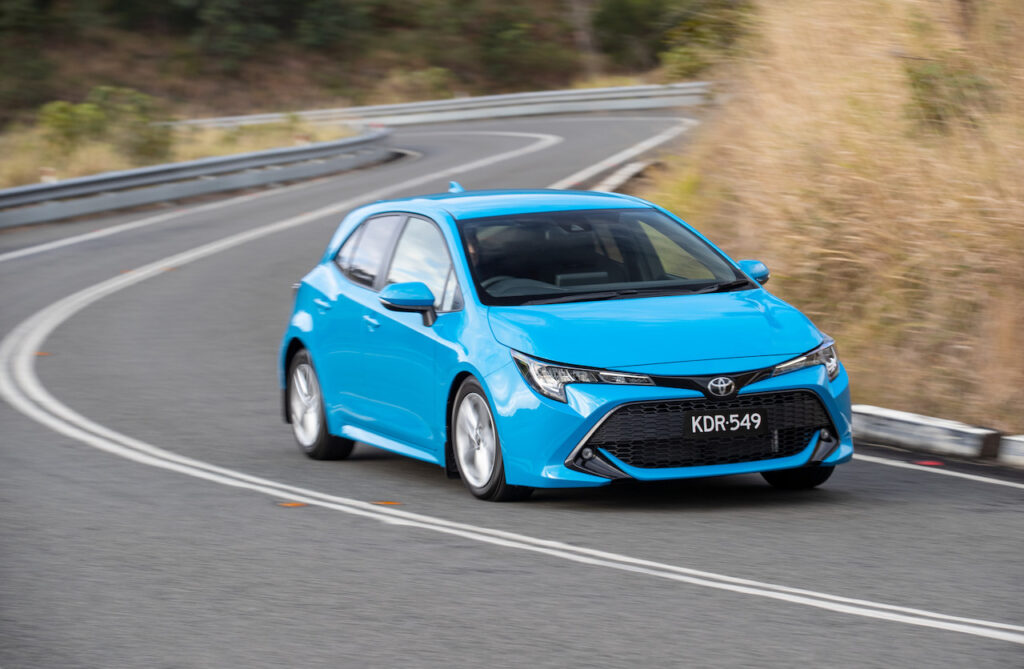
The only more gobstopping fact was that the Holden Commodore, which stopped production in 2017, was still the most popular car in the Blue Haven-Budgewoi area of the Central Coast and in the Wollongong suburb of Berkeley, as well as Windale, near Newcastle.
The European family car, Volkswagen’s Golf, was the most popular vehicle in a whopping 26 postcodes, including Mosman, Bondi, Balgowlah, Darlinghurst and Manly.
The analysis found the Toyota HiLux ute was the most prevalent vehicle in some suburbs, of course, largely the western areas of Sydne, but the Golf and Corolla shared the top three spots with the Toyota ute.
Another former Australian sales-chart topper – the Mazda 3 – topped a dozen postcodes and the Ford Ranger just four.
What this suggests is that perhaps all Australians really need, in their day-to-day lives, are Corolla-sized vehicles, which, as it turns out, make very good EVs.
With all this in our favour, then, why aren’t we leading the world in the take-up of EVs, or indeed, anywhere near the top?
It’s a very salient question, and one I would really like you, dear readers, to explain to me.

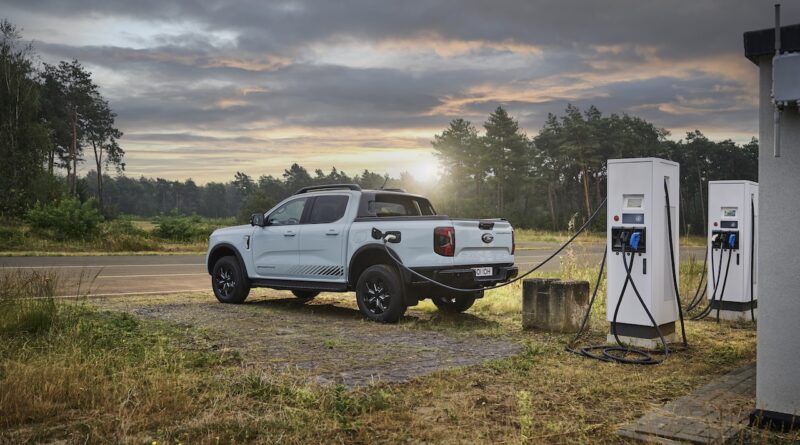
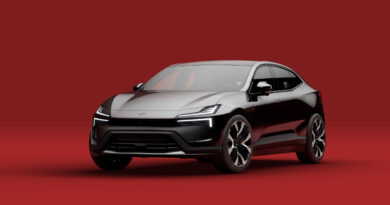
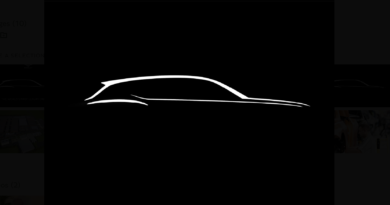
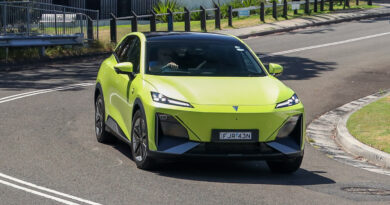
I recently had an EV hire car and loved it. I won’t buy a Chinese car due to Chinese interference in Australia’s affairs, eg South China Sea, tariffs on barley meat etc, so a lot of EVs ,Tesla’s included are off the list.
We only have one car so need a highway car too so I’m waiting for the Kia EV3, 80KWh battery, 600km range, to arrive next year.
I do enjoy how you used 2 different statistics to try to prove your ev story and then lumped petrol cars as 1.
Try country drivers for petrol diesel as they do over 22000 kilometers a year and you also forgot that ev owners are in the very well off brigade and paid a average of $90000 for their ev.
Nice try and failed the truth test
I paid a lot less for my Ioniq5 and drive 34000km a year
I charge predominantly from rooftop solar, except when travelling to the south coast or across the Nullarbor
Why? A media dominated by News Corp and right wing shock jocks who, surprise, surprise rely on motor vehicle and fossil fuel advertising.
Luke warm and patchy government support for EVs and public charging
Atto 3 here, knocked of 20000kms in the first year, may trips from Syd to Canberra Jindabyne Melbourne, and its our daily driver in Sydney town,
What to do with the Kluger that we kept for long country drives, cause we never thought an EV would be suitable 🙂
Manufacturers slashing their EV prices in an obvious price war just proves the early EV adopters were being ripped off. It pays to wait it out for a bargain deal and enjoy the upgraded batteries and tech.
We also seem to prefer to mow our 40 square metre lawns with a 4-stroke petrol mower rather an efficient electric unit.
The smoke and noise are much more macho, like the range anxiety of that once-per-year road trip is the one good reason that nudges a traditional Aussie towards a fuel-burner camping/towing/holiday vehicle.
Interesting article, but sadly EV’s are out of reach of most people trying to cope with cost of living pressures, due the price of EV’s. There is no price incentive to adopt EV’s while people can buy new ICE vehicle for half the cost of an EV. The Federal and state governments should remove the luxury car tax and stamp duty on the purchase EV’s. We dont have a Vehicle building industry, since Hockey killed it off, so what’s to protect. This would stimulate primary EV sales and encourage second hand EV sales.
The MG4 is now close to $30k with rebates. ICEVs are going up in price. It is pretty well a no-brainer now already